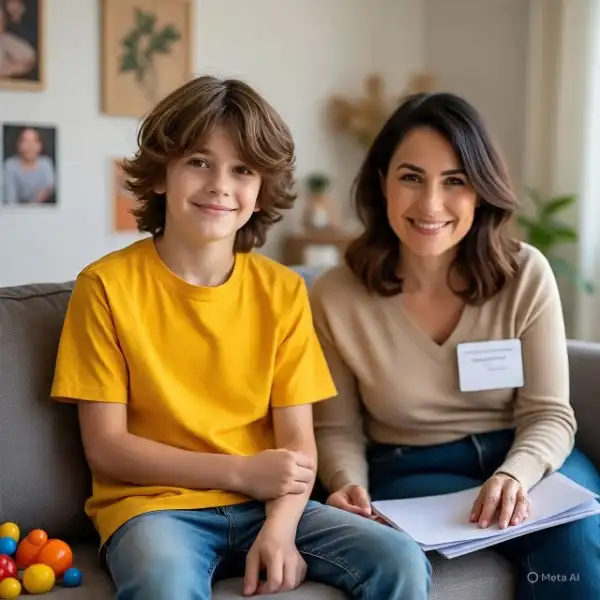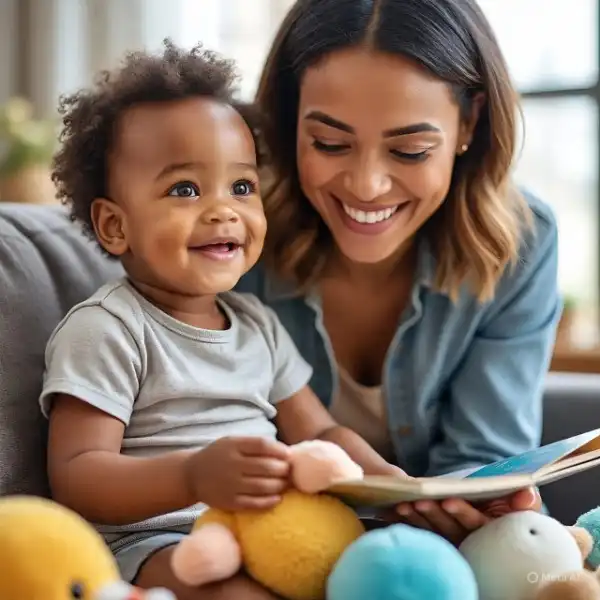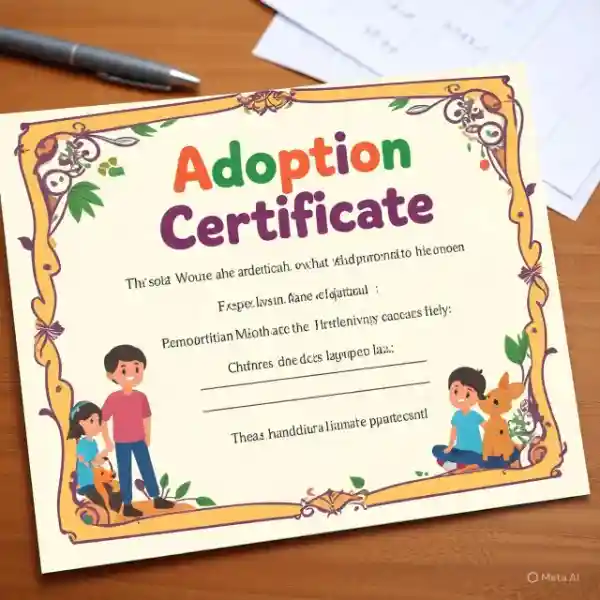Marriage And Adoption: 7 Proven Secrets for Successful Marriage

Let me tell you something that could change your mindset about adoption: did you know that according to research, couples who have adopted children say they have low divorce rates that are lower than the general population when they receive good support?
This is a pure contradiction to the widespread myth that adoption can strain any relationship beyond repair. The truth is that marriage and adoption can go hand in hand, especially when couples discover the type of dynamic at play.
According to Dr. David Brodzinsky, a renowned adoption researcher and clinical psychologist, “even the well-prepared couples also experience deeper bonds through the adoption journey, and also discover the resilience they never knew existed.
Understanding the Marriage and Adoption Connection:
Marriage and adoption are closely linked in a very intricate way. Couples will adopt because they desire to have more kids in their family, but the reality is that a new adoption journey is a transformation of their existing bond that comes with testing and strengthening of the partnership.
The same goes for the Evan B. Donaldson Adoption Institute, which states that among couples, those who have gone through adoption together as a family experience more marital happiness.
What makes the difference is that being adoptive parents means much more than simply having an additional child in your life; what you get is a brand new family structure which, just like any other, needs the love and attention not only directed to the kids but also to the spouses.
In this post, we will learn more about how marriage and adoption can coexist effectively, and how it can bring more joy and love to families. Let’s dive in.
Secrets On How Marriage And Adoption Can Coexist Effective To Boost Marriages:
Secret #1: Pre-adoption Counseling Strengthens Your Foundation:
It is worth remembering that the time for counseling before adoption is always now right before putting pen to paper. Marriage and adoption experts like Dr. Joyce Maguire Pavao are certain that couples who attend pre-adoption counseling experience 40% less marital conflict than those couples that don’t take this kind of preparation.
These talks enable you to spot the issues that may bring you stress, unify your views, and establish your way of talking to each other. Think of this as the relationship insurance that is definitely a must-have. Talk about everything from parenting to money matters.
Moreover, if it is the case, look infertility in the face and talk about how it has influenced your relationship. Such a proactive move leads to having the same point of view before the problems arise.
Secret #2: Maintain Your Couple Identity Amidst Parenting:
One of the most serious errors made by adoptive parents in their raising is to forget who they are as individuals due to their new roles as parents.
Dr. Deborah Gray, a child welfare expert, emphasizes that turning a blind eye to your marriage while at the same time putting all your energy into your adopted child is an unhealthy situation with negative consequences.
Find time for date night every week, time for couples only, and under no circumstances can it be canceled. Come up with activities that celebrate your relationship: morning coffee together, evening walks, or simply fifteen minutes of conversation after bedtime.
The kid will be better off if he/she see that the parents are a strong and loving couple. By the way, you were a couple before you became parents, so taking care of that bond will give dividends to everyone, and help marriage and adoption to coexist effectively.
Secret #3: Develop Adoption-Specific Communication Skills:
Normal parenting discussion topics are not always relevant when talking about adoption-related matters. Marriage and adoption require special and honest communication, which should cover aspects such as identity, birth families, and following a trauma-informed approach in parenting.
Therapist Lori Holden, author of “The Open Hearted Way to Open Adoption,” encourages families to create code words to use in moments that are hard, and to have regular meetings where they share any troubles connected with adoption.
Talk openly about how comfortable you are with the openness of adoption, with the birth families’ contact, and how you’ll manage difficult questions from the extended family. Listen and have no judgment if your partner is telling you fears or frustrations that only relate to the adoption process.
Secret #4: Create a United Financial Strategy:
The cost of adoption can be the cause of division between a couple, even if the couple is the most stable one. The average domestic adoption is reported to be around $20,000 to $45,000, whereas international adoptions are said to be more than $50,000.

So before you plunge into the process, financial planner and adoptive parent Mark Thompson counsels partners to come up with clear budgets and then agree on the ways of funding. Talk together about the usage of savings, loans, grants, or fundraising.
Talk about the cost of adoption, such as therapy, medical care, but also birth family support once the adoption is done. When partners fully understand and admit to each other the financial side of the adoption, money will be less likely to cause conflicts between them.
Come to think of it, it is first of all an investment in your child and in your marriage.
Secret #5: Build Your Support Network Together:
Loneliness is what gradually destroys marriages under adoption’s different kinds of stress. Dr. Rafael Bejar, a family systems therapist, has found that couples who have developed support networks experience 60% more marital satisfaction than before the adoption.
The best way to join such groups is as a couple and not alone. Get in touch with other adoptive families that not only endure but also understand the journey. Recognize the friends and relatives who are sincerely happy for your adoption decision.
You may be willing to separate yourself from the company of those who are antagonistic or don’t support you. Remember, your support network should be the one strengthening your marriage not the one tearing it down.
And, requesting help is not a sign of weakness but rather of wisdom, which you should bear in mind.
Secret #6: Embrace Trauma-Informed Parenting as Partners:
The majority of adopted children have undergone some sort of trauma even if it is from their early days. When such a child’s behavior is difficult, this fact will somehow affect your marriage.
Marriage and adoptive therapist parent Robyn Gobbel points out that those couples who together learn about trauma, attachment, and regulation eventually become partners in healing the trauma. You can jointly participate in seminars, read the same book separately, and then share what you have understood.
If difficult behavior is there, you will have a common ground of understanding rather than blaming. Motivate each other in the hard yet rewarding work of therapeutic parenting. Win the small battles together and grieve the big losses together too, as a team, knowing you both are doing your best.
Secret #7: Prioritize Individual Self-Care:
This might sound strange in the context of marital relationships, but individual well-being has a direct influence on marital health. Marriage and adoption counselor Dr. Amanda Baden highlights that burnout, as a result of adoptive parenting, can have a different impact on the partners. For recharging, one may need to be alone, while the other will require social interaction.
Indulge each other in the permission for self-care that is free from the feeling of guilt. It could be gym time, therapy sessions, or time for a hobby, guarding individual wellness helps prevent the buildup of resentment and keeps patience It’s there.
When you take care of yourself, you will be of better service to your spouse and child. The very act of self-care is not selfish; rather, it is necessary for sustained living, and for proper coexistence between marriage and adoption.
Navigating the First Year Post Adoption:
By far the first year after the arrival of the child at home is a peculiar test of marriages and adoption coexistence. The lack of sleep, attachment problems, and identity changes come together at the same time.
Marriage and Adoption expert Dr. Karyn Purvis revealed that couples who decide to have a weekly talk during that time report a very significant stress relief effect. Talk about the things that work, the ones that don’t, and your emotions without feeling the need to fix everything at once.
Take down your bar for everything except communication and kindness. In particular, don’t take in the dishes, but talk while eating. This season will not be eternal but the way you handle it will determine where your marriage will be going.
The Role of Extended Family in Your Marriage And Adoption Decisions:
Although in-laws and extended family are the people who can either be on the side of your marriage during adoption or against it, they can also put a big strain on it. This is when boundaries become so important.
According to child psychologist Dr. Adam Pertman, couples who show a united front to their families, even when they disagree with them privately, are less likely to be invaded by the external world which, in turn, leads to the protection of their marriage against it.
Together make decisions regarding the involvement of the grandparents, the type of language you will be using when talking about your marriage and adoption, and ways you will be handling the unsupportive comments.
Do not permit family members to play the role of a mediator between you. When your extended family shows respect to your authority as parents and partnership in marriage, then they, indeed, turn out to be valuable comrades in your journey of adoption.
When Professional Help Becomes Necessary:
Knowing when to ask for marriage counseling help is not a defeat, it is understanding. Marriage and adoption become different factors that can sometimes call for the help of a professional.
Therapist Beth Hall, co-founder of Pact Adoption Alliance, names couples therapy when no communication is established, resentment is felt, and when you are parenting from totally different playbooks.
It is beneficial to find therapists who have undergone training in adoption competency and couples work. Waiting until intervention to tackle the issue of communication can lead to the breakdown of the relationship. Think of therapy not as the last option but as regular check-ups for your most valuable relationship. Your marriage deserves the best care.
The Power of Shared Purpose:
Adoption empowers couples with a heartfelt shared goal: raising a family through love instead of biology. Such a feature of the union can actually become a source of strength for married couples if they use it properly.
According to the marriage and adoption therapist Dr. Jayne Schooler, couples that frequently talk about their adoption values why they took this route, what they are creating together are the ones that stay most connected.
Your marriage becomes the home your foster child can rely on. When your relationship is doing well, so will your child. This shared mission is beyond the small daily problems and it connects you back to a deeper level during tough seasons.
Learning From Adoption Challenges Together:
Every single adoption comes with challenges and surprises: developmental delays, behavioral issues, or grief that may surface years later. These are not the signs of failure, but rather the signs of growth.
Gregory Keck, a marriage and adoption therapist, saw that the couples who considered the challenges as “us against the problem,” not “me against you,” were the ones who kept their marriages stable. When difficulty is knocking on your door, ask each other:
“How are we going to solve this together?” Research the solutions you both need to decide on, then support one another in parenting even when you are tired. Your child wants parents who are a team, and your marriage wants the unity that problem-solving together brings.
Creating Realistic Expectations Together:

Unrealistic expectations are the major factor that tears down a marriage faster than the challenges of adoption. Quite a few couples unconsciously expect thankfulness from their adopted children or quick bonding that solves the grief of infertility.
Marriage and adoption therapist Joyce Maguire Pavao points out the “savior complex” which puts a lot of pressure and expectation on everyone. Share your expectations with each other: What does success look like? How long will the adjustment be?
What challenges can you expect? Realize that adoption is neither easier nor harder than biological parenting, just different. When expectations are in line with reality, there will be fewer disappointments and more compassion. Letting each other in on struggles without doubting whether you took the right path is something you should allow yourselves.
The Long-Term Marriage Benefits of Adoption:
Apart from the challenges, there are quite a few adoptive couples who would tell you that their marriages were eventually strengthened deeply through adoption.
According to the research done by the Donaldson Adoption Institute, couples who go through adoption successfully usually become skilled communicators, empathetic, and resilient, even more than non-adaptive parents.
They become proficient at crisis management, providing support through the unknown, and discovering happiness in unconventional family building. These skills are transferable to all areas of marriage. Many years later, a lot of couples attribute adoption as the source of their acquiring patience, teamwork, and love without conditions.
The lessons not only made their family but also their partnership more resilient and beautiful.
Take Away From This Post:
Marriage and adoption create a powerful, complex intersection that demands intentionality, communication, and commitment.
The seven secrets revealed here about, pre-adoption counseling, keeping couple identity alive, enhancing communication skills, managing finances as a unit, building support networks, embracing trauma-informed approaches, and prioritizing self-care, are the keys to success.
Couples who see adoption as a team venture rather than as individuals can thereby strengthen their marriages to be able to endure any storm and, at the same time, provide the children with the stable, loving homes they are entitled to. The foundation of your marriage is what your whole family is built on.
Frequently Asked Questions About Marriage and Adoption:
Q: How soon after adoption should we seek marriage counseling if we are struggling?
Without a doubt. Waiting until the problems escalate is a mistake. Intervention at an early stage with a therapist competent in adoption can be the solution to small issues that later on can threaten the marriage. Experts strongly advise that one should be seen by a therapist within the first six months post adoption, even if things are going well, as a preventive measure for the relationship.
Q: Is it normal for marriages to feel strained during the adoption process?
Yes, it is. The adoption process is characterized by the presence of stress, uncertainty, financial difficulties, and emotional vulnerability. Studies indicate that the drop in marital satisfaction during adoption is a temporary one and thus normal, and the situation is usually resolved within the first year provided that the couple maintains communication and seeks support. Struggle does not mean that your marriage is failing it means that you are going through something difficult.
Q: Can adoption save a struggling marriage?
Negative. Marriage and Adoption experts are of one mind that the addition of a child in a badly run marriage will most probably aggravate the existing problems rather than provide a solution. Adoption calls for a strong base. If your marriage is shaky now, then don’t think about adoption until after you have sorted your issues out through counseling. The child you are going to have later on deserves parents who are in a healthy, functioning partnership.






